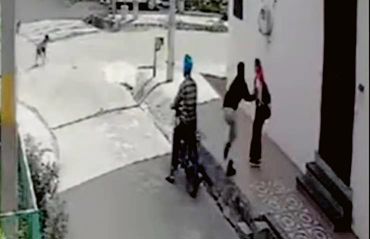
Photo credit: iStock
Kochi, January 23
The Kerala High Court has dismissed a habeas corpus plea filed by a 52-year-old man claiming to be a “spiritual guru” seeking release of a 21-year-old woman from the custody of her parents terming her as his “spiritual live-in-partner”.
A Division Bench of the High Court, comprising justices K Vinod Chandran and M R Anitha, dismissed the plea observing that the “antecedents” of the man are “not such as to trust him with the custody of a young girl of 21” on mere statement of she being tutored, by him, in spirituality.
“This is especially so when the parents of the subject had initially approached the petitioner with their daughter for psychiatric consultation and their trust in him as a doctor and therapist was breached to the extent of the petitioner declaring his patient to be a live-in partner; when he himself was married with two children,” the court said in its January 20 order.
In his plea, the man alleged illegal detention of the woman by her own parents on the ground that he had a live-in relationship with her for the last two and half years.
The man moved the court as the live-in spiritual partner of the woman and does not speak of any marriage between them.
The court, which interacted with the woman, also found that she was “incapable of taking a decision for herself” and directed her to be retained with her parents at her parental home.
“We in fact found nothing to remove the subject from the custody of her parents; in her present mental state, which they are the best persons to address.”
“We are not satisfied that the parents are in any manner incapable of or dis-entitled from retaining custody of their daughter who though a major was showing signs of mental disturbance,” said the judgement authored by Justice Vinod Chandran.
The man is said to have completed MBBS from Medical College, Thiruvananthapuram and after his marriage to a woman in 2001, proceeded to the UK for post-graduation in Psychiatry.
After returning, he initially pursued the medical profession, but later proclaimed himself to be a Vedic Yogacharya/Instructor.
The court noted that the man is also stated to have not cooperated for a direct and detailed inquiry and was unwilling to disclose his personal and professional details.
The petitioner claimed that he was getting fees and gifts from his followers and he had no other regular means of income.
“On local inquiry it is reported that there is no information of the petitioner having any followers. It is reported that the petitioner is not leading a socially acceptable life and has difficulty in explaining the means and goals of his spirituality,” the court said.
In his plea, the man asserted he had a live-in relationship with the woman for the last two-and-a-half years as spiritual partners.
The court observed that there was no allegation that the parents had illegally removed the woman from the man’s custody.
The man admitted he is married with two children but goes on to say that they are under the care and shelter of the petitioner, living separately, it said.
The court recalled its earlier interaction with the woman wherein she categorically denied she was married and asserted the relationship with the man to be divine.
The court offered her assistance for counselling and tried to persuade her to at least, at its behest, to interact with a psychiatrist or psychoanalyst for it to get an expert opinion, which she refused point blank, it said.
“We attempted such a course of action since the subject, on our assessment, was incapable of taking a decision for herself and the parents too had raised serious concerns of her obsessive behaviour which we too witnessed during our interaction,” the court said.
In its judgment, the court cited the Supreme Court’s judgment in the Hadiya case holding that its interactions with the woman suggested that she was having “vulnerability occasioned by mental disturbance.”
The court also referred to a passage from the Hadiya case where the Supreme Court observed that there was nothing to suggest that Hadiya suffered from any kind of “mental incapacity or vulnerability”. --- PTI
Join Whatsapp Channel of The Tribune for latest updates.



























